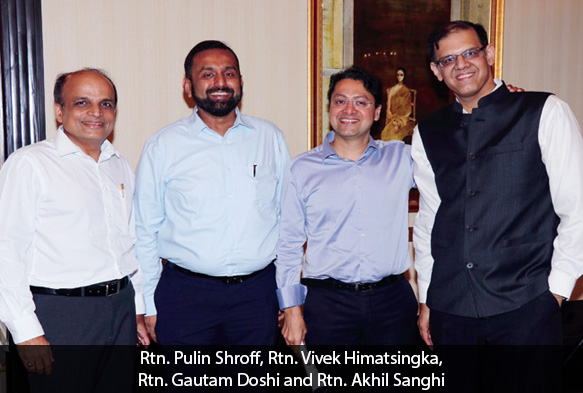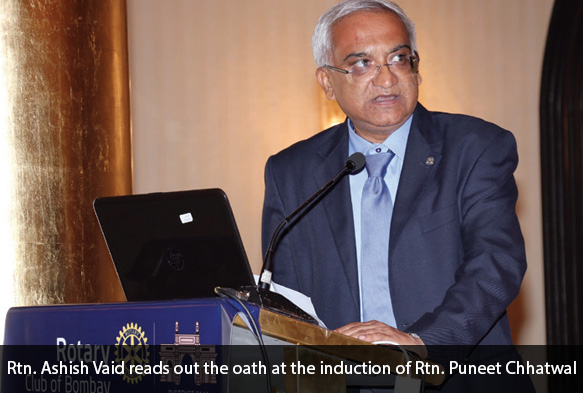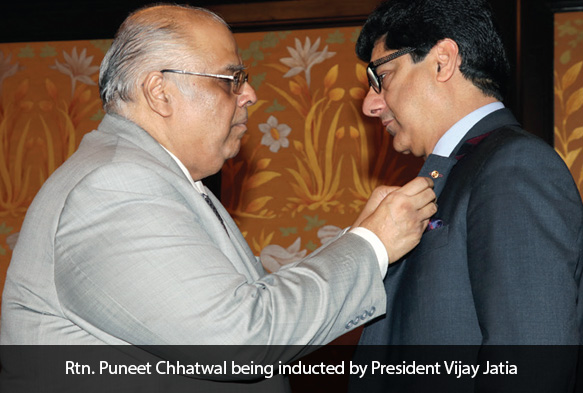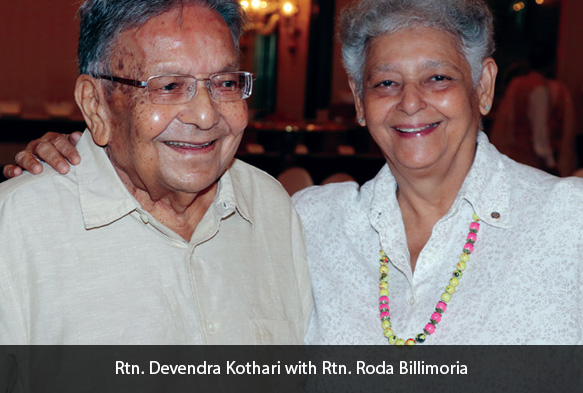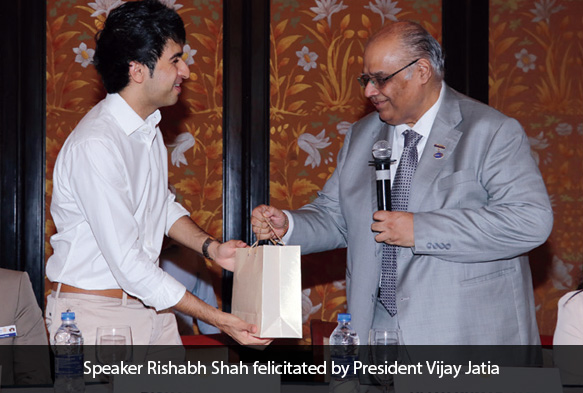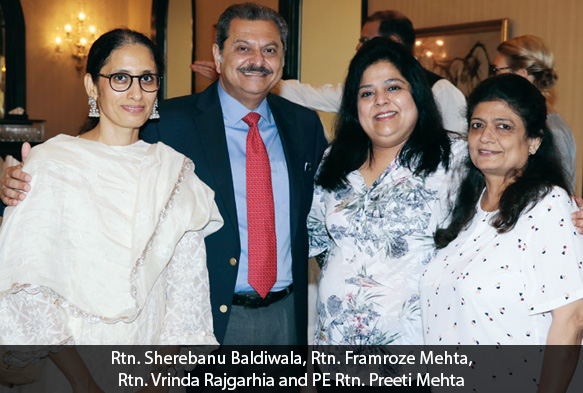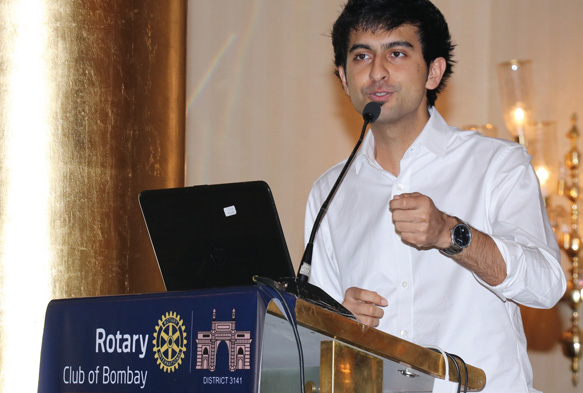
Taking India to the world
Is it possible to get teenagers interested in becoming vehicles of change? Rishabh Shah says yes
WHAT MAKES A BOY LIKE ANY OTHER exemplary? What makes a member of India’s 300 million plus passive youth (in the ages 13 to 19) engaged in the country around him and passionate to effect changes? Rishabh Shah, who was on his way to becoming a Chartered Accountant, saw a mock UN being staged and participated in it and his life was never the same.
He has now empowered himself to similarly shape young minds across the country through IIMUN, Indian International Model United Nations.
Based in India, IIMUN is an external civil society organisation which conducts simulations of United Nations and
Indian Parliament. This is held across different cities to encourage young citizens to envision their problems and
take charge of them.
At the Rotary meeting on Tuesday, October 9, 2018, Rishabh narrated an anecdote about his grandfather who was very surprised that he had been invited to speak at this august gathering. Rishabh’s grandfather, like all grandparents, is both proud and dismissive of their grandchild and their ability to effect change.
Taking advantage of their identity as being a demographic that can fly under the radar, Rishabh feels the youth, once engaged in their country, will actually be able to make changes one cause at a time.
Back in the day, it was upon the advice of the Principal of his college HR, Rtn. Dr (Mrs) Indu Shahani, that Rishabh took up Chartered Accountancy. By then he had travelled to Harvard and Hague for a Model UN.
The idea of role playing the Heads of State in mock UNOs caught his attention as he had not seen many being played
out in India. He was fascinated with the idea of ‘soft power’ (influence without using too many official political
resources) discussed at Harvard. And, with the help of Rtn. Principal Shahani, Rishabh began to convert the idea into action.
The main line of distinction between the mock UNO of Harvard and Hague and that of India was the structure of the political system in these countries themselves.
It was obvious to Rishabh that the work would need to begin with changing the perception of the Indian Parliament as being the place where ‘they only throw chairs at each other’. Rishabh shares his observation from the 1st mock UNO where a 14-year-old role played the then PM of India, Manmohan Singh, a video of which was sent to INC. The initiative that he started at HR college continued after he left it. He continued to build upon it himself, giving birth to IIMUN.
The IIMUN has been applauded in every spectrum. It has helped renew the definition of Indian politics amongst
students across the world with one instance where Japanese students role played Indian politicians, says Rishabh.
In 2018, with an Advisory Board in place, IIMUN got a new direction. Students were beginning to learn about India,
United Nations and Indian politics.
A committee based on Arthashastra now teaches students how to deal with problems of today, thus bringing about a thought of making our history relevant to our present.
THE IDEA IS TO GET INDIAN STUDENTS BETWEEN 13 TO 19 TO BECOME GLOBAL CITIZENS WITH AN INDIAN MIND-SET.
IIMUN aims to help the youth move from mundane classroom discussions to bringing a tangible change in an honest
attempt to make a borderless world.
The IIMUN takes cognizance of the Sustainable Development Goals outlined by the United Nations; combat climate
change, food for all and educate all. The organisation has smartly made students contribute towards these goals by stating that they will be given a certificate at the end of the competition only after they plant a tree or feed someone or donate a book to someone. Thus, slowly and gradually, a change will be observed. IIMUN also has, on its agenda, getting India a permanent seat in the United Nations Security Council; that is something Rishabh is very passionate about. He feels that the volume of students in IIMUN has add up to numbers that cannot be easily ignored.

